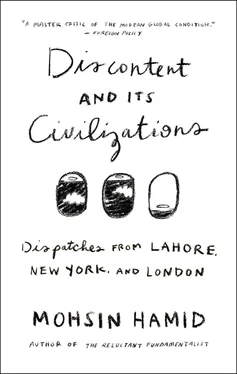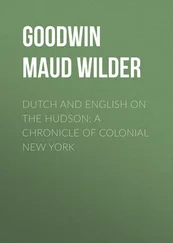Ah, I’ve heard it said too often, those woman-written books may be fine, there may be some good American novels among them, even great American novels, but they aren’t the Great American Novel. So I’ve come to make an announcement. There is no such thing.
The point of there being a notion of the Great American Novel is to elevate fiction. It’s a target for writers to aim at. It’s a mythological beast, an impossible mountaintop, a magical vale in the forest, a place to get storytellers dreaming of one day reaching. It keeps you warm when times are cold, and times in the world of writing for a living are mostly cold.
But if the idea of the Great American Novel is blinding us to exquisite fiction written by women, then perhaps its harm is exceeding its usefulness. Attempt, therefore, to resist the admittedly rich resonances that attach to the fact that a Muslim-named man who lives in Pakistan is performing this task, and bear with me as I advocate the death of the Great American Novel.
The problem is in the phrase itself. “Great” and “Novel” are fine. But “the” is needlessly exclusionary, and “American” is unfortunately parochial. The whole, capitalized, seems to speak to a deep and abiding insecurity, perhaps a colonial legacy. How odd it would be to call Homer’s Iliad or Rumi’s Masnavi “the Great Eastern Mediterranean Poem.”
Elevated fiction reaches for transcendence. Gatsby ’s beauty, Blood Meridian ’s beauty, Beloved ’s beauty don’t lie in their capturing something quintessentially American, for there is no such thing. These novels reveal an America too vast and diverse to support unitary narratives. They split atoms to reveal galaxies. Their beauties lie in attaining wisdom and craftsmanship so exalted as to exceed our petty nationalisms — so exalted, in other words, as to be human.
This wisdom may come from Americans and be set in America, but it is bigger than notions of black or white, male or female, American or non-. Human beings don’t necessarily exist inside of (or correspond to) the neat racial, gendered, or national boxes into which we often unthinkingly place them.
It’s a mistake to ask literature to reinforce such structures. Literature tends to crack them. Literature is where we free ourselves. Otherwise, why imagine at all? So drop the caps. Drop the “the.” Drop the “American.” Unless you think you’re working on the Great American Novel. In which case, if it helps, keep the notion of it alive in your heart, no longer as a target to hit, but as the gravity you must defy to break from orbit and soar into space.
We’re out here. Waiting for you. Foreigners. Freaks, every last one. Your laws call us aliens. But you know better. You’ve grappled with the freakiness within. You’re part of us. And we of you.
Welcome, American. Now tell us about Topeka. Or Taiwan. And, by the way, have you brought along a copy of the latest Oates?
(2013)
How Do E-Books Change the Reading Experience?
THE ADVANTAGES OF e-books are clear. E-books are immediate. Sitting at home in Pakistan, I can read an intriguing review of a book, one not yet in stores here, and with the click of a button be reading that book in an instant. E-books are also incorporeal. While traveling, which I do frequently, I can bring along several volumes, weightless and indeed without volume, thereby enabling me to pack only a carry-on bag.
And yet the experience of reading e-books is not always satisfactory. Yes, it is possible to vary the size of the font, newly important to me at age forty-two, as I begin to perceive my eye muscles weakening. Yes, e-books can be read in the dark, self-illuminated, a convenient feature when my wife is asleep and I am too lazy to leave our bed, or when electricity outages in Lahore have persisted for so long that our backup batteries are depleted. And yes, they offer more frequent indicators of progress, their click-forwards arriving at a rapidity that far exceeds that of paper flipping, because pixelated screens tend to hold less data than printed pages and furthermore advance singly, not in two-sided pairs.
Nonetheless, often I prefer reading to e-reading. Or rather, given that the dominance of paper can no longer be assumed, p-reading to e-.
I think my reasons are related to the fact that I have disabled the browser on my mobile phone. I haven’t deleted it. Instead, I’ve used the restrictions feature in my phone’s operating system to hide the browser, requiring me to enter a code to expose and enable it. I can use the browser when I find it necessary to browse. But, for the most part, this setting serves as a reminder to question manufactured desires, to resist unless I have good cause.
Similarly, I have switched my e-mail account from the attention- and battery-consuming “push” setting to the less frenzied manual one. E-mails are fetched when I want them to be, which is not all that often. And the browser on my slender fruit knife of a laptop now contains a readout that reminds (or is it warns?) me how much time I have spent online.
Time is our most precious currency. So it’s significant that we are being encouraged, wherever possible, to think of our attention not as expenditure but as consumption. This blurring of labor and entertainment forms the basis, for example, of the financial alchemy that conjures deca-billion-dollar valuations for social-networking companies.
I crave technology, connectivity. But I crave solitude, too. As we enter the cyborg era, as we begin the physical shift to human-machine hybrid, there will be those who embrace this epochal change, happily swapping cranial space for built-in processors. There will be others who reject the new ways entirely, perhaps even waging holy war against them, with little chance — in the face of drones that operate autonomously while unconcerned shareholding populations post selfies and status updates — of success. And there will be people like me, with our powered exoskeletons left often in the closet, able to leap over buildings when the mood strikes us, but also prone to wandering naked and feeling the sand of a beach between our puny toes.
In a world of intrusive technology, we must engage in a kind of struggle if we wish to sustain moments of solitude. E-reading opens the door to distraction. It invites connectivity and clicking and purchasing. The closed network of a printed book, on the other hand, seems to offer greater serenity. It harks back to a pre-jacked-in age. Cloth, paper, ink: for these read helmet, cuirass, shield. They afford a degree of protection and make possible a less intermediated, less fractured experience. They guard our aloneness. That is why I love them, and why I read printed books still.
(2014)
Are the New “Golden Age” TV Shows the New Novels?
MOVIES HAVE ALWAYS seemed to me a much tighter form of storytelling than novels, requiring greater compression, and in that sense falling somewhere between the short story and the novel in scale. To watch a feature film is to be immersed in its world for an hour and a half, or maybe two, or exceptionally three. A novel that takes only three hours to read would be a short novel indeed, and novels that last five times as long are commonplace.
Television is more capacious. Episode after episode, and season after season, a serial drama can uncoil for dozens of hours before reaching its end. Along the way, its characters and plot have room to develop, to change course, to congeal. In its near limitlessness, TV rivals the novel.
What once sheltered the novel were differences in the quality of writing. Films could be well written, but they were smaller than novels. TV was big, but its writing was clunky. The novel had Pride and Prejudice ; TV had Dynasty . But television has made enormous leaps in the last decade or so. The writing has improved remarkably, as have the acting, direction, and design.
Читать дальше












